- Home
- Sarah Hall
Sex and Death
Sex and Death Read online
DEDICATION
For Clare Conville,
brilliant and fierce,
and
for Deborah Rogers,
in loving memory.
CONTENTS
Dedication
Introduction
Dr Pacific - Robert Drewe
George and Elizabeth - Ben Marcus
Fixations - Ceridwen Dovey
The Postcard - Wells Tower
Evie - Sarah Hall
The Days After Love - Yiyun Li
Where Hast Thou Been - Jon McGregor
10-Item Edinburgh Postpartum Depression Scale - Claire Vaye Watkins
Reversible - Courttia Newland
The News of Her Death - Petina Gappah
Visitation - Damon Galgut
Frank’s Last Days - Guadalupe Nettel translated by Rosalind Harvey
Porto Baso Scale Modellers - Alan Warner
Fin - Lynn Coady
In the Reactor - Peter Hobbs
Brunhilda in Love - Taiye Selasi
The Closing Date - Alexander MacLeod
The Fortune Fish - Clare Wigfall
Toronto and the State of Grace - Kevin Barry
Metaphysical - Ali Smith
Author biographies
Acknowledgements
About the Editors
Credits
Copyright
About the Publisher
INTRODUCTION
What civil lives we lead. So mannered, so controlled. Everything tidy and safe, everything put in its place. How hard we try not to be frightened, not to let the mind and body misbehave, not to come undone. Look at us in our ties and our stockings, taking vitamins and buying prophylactics, arranging mortgages and emptying the bins, ameliorating, ordering. We’ve almost convinced ourselves.
But underneath, closer than we dare to think, is the reddish nature of humanity, the strong meat of our anatomy. The force that drives us on, generation after generation, the gust behind us we don’t want to feel but is always felt, moves us towards the edge. How we come in, and how we go out, sex and death: these are the governing drives, our two greatest themes. The humid embrace and the cold sweat. The weight of a coffin on the shoulder, the illicit kiss or la petite mort; the sting of intimately split flesh and the wonder of holding a tiny howling genetic machine in our arms. These are the moments we are left staring into the void, realising, rejoicing, or fucking it all up.
With its concentrated dosage, its os into the soul, and its existential insolvency, the short story form is the perfect vehicle for our ecstasies and agonies, for reminding us of what we already know but can’t quite reconcile – the cognitive dissonance of living and dying, the attempts at loving in between. By nature, the short story has immense power, as does the human imperative. That the two should meet seems inexorable, like gorgeous and terrible suitors, Eros and Thanatos in coitus behind closed doors.
Here, then, are twenty splendid adult versions of the truth, or the lie, however we might regard it, newly composed by some of the finest writers across the globe. Here are twenty stripped visions of the meaning of us, if we have any meaning at all. There is no hush-hush come-come, no literary analgesic or barrier salve for our most profound experiences. They move, elate, excruciate, and they arrive at the most unexpected times. In each story, there is no consolation or answer to be found, other than looking into the bare mirror of ourselves, the phenomenology of our shared and varied fates, the beauty of simply saying, ah, yes, here we are, or there we were.
Sarah Hall and Peter Hobbs
DR PACIFIC
Robert Drewe
Don dropped dead on the sand and that was that. We’d just finished our lighthouse walk and he bent down to remove his shoes for our swim and keeled over. He was in his blue board shorts with the red palm trees. One shoe on and one shoe off when the ambulance took him – his new Rockport walkers. Only seventy-eight. Three years ago now and as I said, that was that.
Since that moment the days often look blurry around the edges, like I’m wearing his glasses by mistake. People loom around corners when I don’t expect them and next minute they’re on the doorstep. Jehovahs. Seventh Dayers. Charity collectors.
A Green type of woman in drifty clothes came by wanting to save baby fruit bats. She said the cold snap was making them lose their grip and fall out of the trees and they needed to be wrapped up in bandannas and fed mango smoothies. She was collecting money to provide the bandannas and smoothies and she showed me a photo of a baby bat in a red bandanna to clinch the deal.
‘Look how cute it is, peeping out snug and warm,’ she said.
‘Cuteness is a survival characteristic of baby animals,’ I said. ‘If you ask me, this one looks a bit confused being right side up instead of hanging upside down.’
‘But very cute, you must admit,’ she said, shaking her Save the Grey-Headed Flying Fox collection tin. It hardly rattled. She was one of those North Coast women who look better from a distance.
The reason I was unsympathetic was that we’ve got hundreds of them living in a colony in our street, raiding our fruit trees and screeching all night and doing their business all over our decks, especially the Hassetts’ and the Rasmussens’, and the council playground so kids can’t play outdoors, and probably spreading the Hendra virus or Ebola or something.
Even worse than their noise and mess and being kept awake all night, the most irritating thing about them is they take only one bite out of each piece of fruit. They like to sample one bite out of every papaya and mango and mandarin on the coast – and they ruin the lot. And of course they’re protected under the Wildlife Act.
Mind you, there’s even people around here who are fond of brown snakes, the ones that kill you quickest. Those people need a slap, honestly. And down at Broken Head there used to be signs saying Do Not Molest the Stingrays. The tourists pinched all the signs for souvenirs.
I said to her, ‘Let nature take its course, miss. If I was a fruit bat and the weather got too nippy, I wouldn’t wait for a bandanna. I’d up stakes and fly to north Queensland.’
Another day a young woman with a bossy accent called in to convince the ‘household’ to switch to a different electricity provider. Sun-Co or North-Sun or something. There were lots of benefits for the ‘household’ in switching to Sun-Co, she said.
I told her it wasn’t much of a household any more. ‘Just this gnarly old bird.’
‘You should go solar and save yourself many dollars,’ she insisted, in a South African sort of voice. ‘The sun is so harsh here you might as well benefit financially from it.’
The way she said ‘harsh’ it sounded like ‘horsh’. Then she looked me up and down in a superior way. ‘Your skin looks like you enjoy plenty of sun.’
I let that go. ‘I certainly do,’ I said, and gave her a big sunny grin. ‘I swim every day, rain or shine. I’ve earned every one of these wrinkles.’
At eighty you can choose which insults you respond to. I said the stove was gas and I just used electricity to run the TV and boil the kettle. I told her I only ate cheese sandwiches and the pensioners’ ten-dollar three-course special at the bowling club. A glass of brown rum of an evening. No point cooking for one.
I said, ‘Miss, when it’s dark and cold I just creep into bed like the decrepit old widow I am.’
She raised her drawn-on eyebrows and cut short her electricity spiel then, like I was one of those eccentric old witches with bird’s nest hair and forty-three cats. Maybe I’d laid the elderly stuff on too thick. But she was a hard-faced girl.
*
Ever notice that after people pass away the world seems to have more sunsets than dawns? I try to avoid sunsets. They stand for things being over. With sunsets I think of Don in his palm-tree board shorts sw
imming over the trees and hills into those pink and gold clouds – that exaggerated heaven you see in the pamphlets the Jehovahs hand out. And our darling boy Nathan and his friend Carlo in ’87. My own Mum and Dad. Oh, sunsets draw the sadness out.
When that sunset feeling seeps in, watch out. Don’t think about everyone gone, and no grandchildren. Sorrow shows in your face. Stay upbeat and busy is my motto. Don’t worry yourself about last words either. (Don’s final word he bubbled out on the sand sounded like ‘Thursday’ or ‘birthday’ – I’ve stopped wondering what it meant.) And don’t blame Carlo any more for making Nathan sick. I try to face east and the dawn and the beginning of things.
Just after sun-up every morning, all seasons, I do my lighthouse walk. It’s always interesting – big blue jellyfish the size of bin lids lying there; sometimes an octopus or little stingray beached in a rock pool. One morning the shore was strewn with hundreds of green capsicums, as if a capsicum freighter had jettisoned them. All green, no red ones, just floating there like blow-up bath toys.
What I enjoy these days is stopping to pick up shells and stones and interesting bits of driftwood to take home. I look for those rare stones shaped like hearts.
Don called this stuff ‘flotsam’. He hated beach decor. ‘Listen, Bet. Are we doing our exercise or picking up flotsam?’ he’d say. ‘Who wants to live in a beachcomber’s shack?’ He preferred the surfaces kept clear for his barometer collection and shiny brass telescope and Sudoku books and his cricketers’ and politicians’ memoirs. Books with deadly dull titles. Afternoon Light and Cabinet Diary and A Good Innings. God save us!
After my walk I leave the morning’s beach souvenirs on my towel and then I’m in the sea, swimming the kilometre from the Pass to Main Beach like Don and I used to.
One thing’s for sure – it’s my love of the ocean that keeps me going. You know what I call the ocean? Dr Pacific. All I need to keep me fit and healthy is my daily consultation with Dr Pacific.
‘Morning!’ I yell out to the surfers waxing their boards on the sand, zipping up their steamers. ‘I’m off to see the Doctor!’
Some of the boys give me a friendly wave. They treat me like I’m their crazy brown granny. ‘Morning, Bet! Looking good!’ They can’t wait to hit the surf and ride those barrels. ‘They’re pumping today!’ they yell.
You see things out there – fish galore, and there’s a pod of dolphins that lives off the Cape, plus many turtles. And shapes and shadows. Sometimes there’s a splash nearby, but I just keep going. I imagine the shadow and splash is Don still swimming alongside me.
*
We’re on the trailing edge of tropical cyclones here on the country’s most easterly point. One moment it’s a hot summer’s day and then Cyclone Norman or Cyclone Sharon spins south with its high winds, choppy surf and water spouts, little tornados twirling across the ocean. The humidity drives us locals out onto our decks. Everyone sits there with their beers and Hibachis and watches the weather over the sea like it’s the Discovery Channel.
It’s all to do with La Niña or El Niño or something. Firstly, clouds bank up over the fishing boats and container ships on the horizon, then the sky turns thundery and purple, the sea looks sulky and there’s distant sheet lightning over the Gold Coast. You can smell the storm racing south. The air smells of meat.
The wind’s blowing barbecue smoke into your face. Pressure builds up in your ears. Then a yellowish mist drops over the ocean and hailstones begin pelting down. By now the fruit bats have got night and day mixed up and they start shrieking in this strange muddy daylight as if the sky’s falling.
Just as quickly the hail stops, like a tap’s been turned off, the sky’s clear and the wind moves offshore. The waves spray backwards against the tide in lines of spindrift. The air’s so sharp you can see the humpbacks breaching on their way back to the Antarctic.
Funny how the cyclone weather gets all the bachelor whales overstimulated. The sea’s getting strangely warm for them here and they start displaying for the girl whales. Slapping their tails on the water, showing off like teenage boys. Slap, slap, over and over.
*
During Cyclone Sharon we were all out on our decks every day for a week. Even the main bat victims, the Rasmussens and Hassetts. Curiosity and anxiety plus a faint shred of hope brought everyone out. It was bedlam with the noise of the coastguard helicopters and the spotter planes and the lifesavers in their rubber duckies and jet-skis and the water-police launches. Up and down the shoreline and river mouths they were searching for poor Russell Monaghetti.
What happened was Russell’s prawn trawler, the Tropic Lass, overturned at night in the cyclone seas off Cape Byron. Russell and his two young deckhands were believed lost. But next afternoon, the youngest boy, Lachie Pascall, crawled up on Belongil beach.
Lachie had been guided by the lighthouse and swum eleven miles to shore. He was exhausted, flat as a tack, but he told the rescue services approximately where the boat had sunk.
He said he’d left the others clinging to floating stuff when he set off to swim to land. So they concentrated the hunt and, you wouldn’t believe it, six hours later they found Brendan Lutz, the second boy. Brendan was just alive. He was badly sun-blistered and dehydrated and hugging an ice box. They had to prise his fingers off it.
For a day or so that gave everyone hope. Brendan said the last he’d seen of Russell he was clutching a marker buoy. But now there was no sign of him, and after another five days the search for him was called off.
Very sad. I knew poor Russell. His boat operated out of the Brunswick Heads fishermen’s marina and when he wasn’t at sea he was a regular drinker down at the bowling club on Friday and Saturday nights. He was quite a big wheel, on the club committee and everything.
‘How’s my surfer chick?’ he’d call out. He liked to flirt with me in a teasing way. ‘Still fighting the surfers off, Betty?’ he’d say. ‘If only I stood a chance!’
‘Too young for me,’ I’d shoot back. ‘I’m no cougar.’ Russell was late sixties, I’m guessing. A good-looking silvery fellow. Lovely smile. The dashing, cheeky sort I used to go for before Don came along.
Russell knew I liked a rum or two of an evening. During the bingo he’d sneak a mojito onto the table for me when I wasn’t looking. Once he pinched a hibiscus flower off the bush by the club’s entrance and left it alongside the drink.
*
That strange time of Cyclone Sharon I’d be walking home from my meal at the bowling club about nine – it’s only a couple of blocks – and I’d look up and the sky would be thronging with dopey fruit bats caught in the lighthouse beam. Flapping wilder than usual, squealing, and crashing into trees and electricity wires. Bats were even on the sand and struggling in the shallows. Where’s your famous radar now? I wondered.
The colony had started raiding the local coffee plantations. They’d chewed up thousands of dollars’ worth of ripe beans and the local growers were in a panic. As usual, Parks and Wildlife was no help.
‘The grey-headed flying fox is a protected coastal species,’ they said. Blah, blah. ‘Try scare guns or netting the plantations.’ But the nets were too expensive and the fake guns only made the bats shriek and act crazier, especially now they were addicted to coffee.
As their caffeine habit increased, the bats became even more speedy and twitchy. Their flying was more reckless, their screeching and squabbles were even shriller than usual. And they began to fall off the perch.
It took a while but the survivors eventually woke up to themselves and threw off their caffeine addiction. Mind you, there wasn’t much left to eat around here by then. One full moon there was a great squawking and flapping, as if they’d come to a decision, and what was left of the colony upped stakes and flew north into the wind.
Carol Hassett’s house had taken the brunt of their droppings and noise. Carol said she hoped they all had headaches from coffee withdrawal.
*
I was on my morning lighthouse walk at low
tide. It was three or four weeks after the latest cyclone had rearranged the shoreline and something not regular, a bump on the smoothness, caught my eye on the hard-packed sand. A big shiny white bone had just washed up.
I stopped and picked it up. It hadn’t been long in the sea. No weed was growing on it, and it wasn’t eroded. It didn’t look like any animal bone I could recall. Thick, quite heavy, it was about as long as – I’m sorry to say – a human thigh bone.
I know I think about things too much these days. If I’m not careful my imagination runs away with me. But as I turned it over in my hand, boy, I had that prickly sensation on the back of my neck. This old duck almost passed out there on the shore.
I said to myself, ‘Betty, you’re holding a thigh bone in your hand!’ The sides were smooth and one end of the bone was cleanly snapped. At its widest end the bone was jagged, with a zigzag edge of sharp points, as if it had been severed by a big pair of pinking shears.
I held the white bone with the zigzag edge and my neck did that prickly thing. I was thinking of the search for Russell, and of his friendly ways, and his silvery looks, and of what I now presumed had happened to him. It took all my concentration not to collapse on the sand.
What should I do with the bone? Take it to the Byron Bay police? The cops would probably laugh it off as bait from a lobster pot or garbage thrown from a ship. (‘This lady thinks she’s found a femur, Sergeant!’)
Lots of thoughts struck me. If it was Russell’s thigh bone, would his next of kin appreciate its discovery? (He was close to his three daughters and he had an ex-wife somewhere.) Wouldn’t the evidence of the bone – that sharp, zigzag pattern – be too brutal for his girls? Shouldn’t there be a thingamajig, a DNA test? Could you hold a funeral service for a femur?
Anyway, what amount of remains, what percentage of flesh or bone was necessary for a trace of a person to be counted as a body? Would a leg bone count? Did it have a soul? I’m not a religious woman – I don’t know these things. What would my pesky Jehovahs and Seventh Dayers say? God’s in nature, is all I believe.

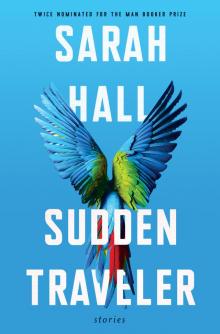 Sudden Traveler
Sudden Traveler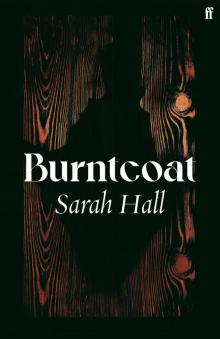 Burntcoat
Burntcoat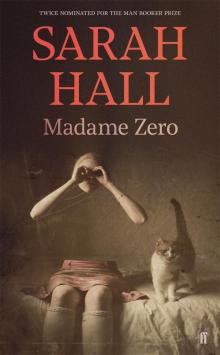 Madame Zero
Madame Zero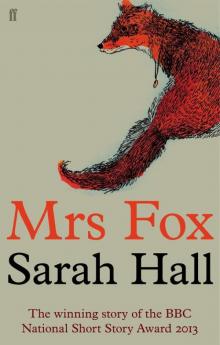 Mrs Fox
Mrs Fox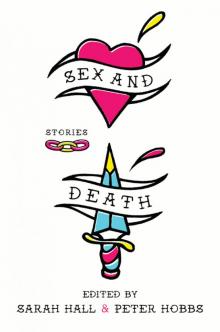 Sex and Death
Sex and Death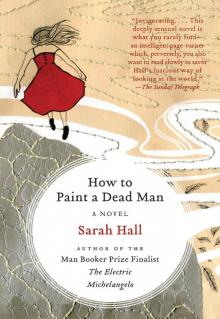 How to Paint a Dead Man
How to Paint a Dead Man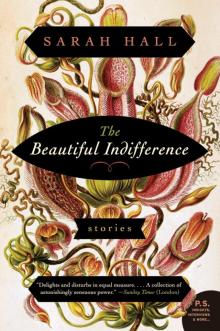 The Beautiful Indifference
The Beautiful Indifference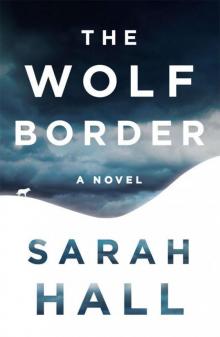 The Wolf Border
The Wolf Border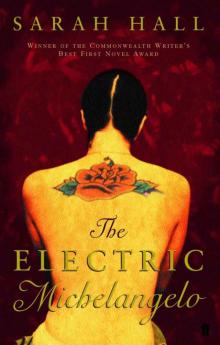 The Electric Michelangelo
The Electric Michelangelo